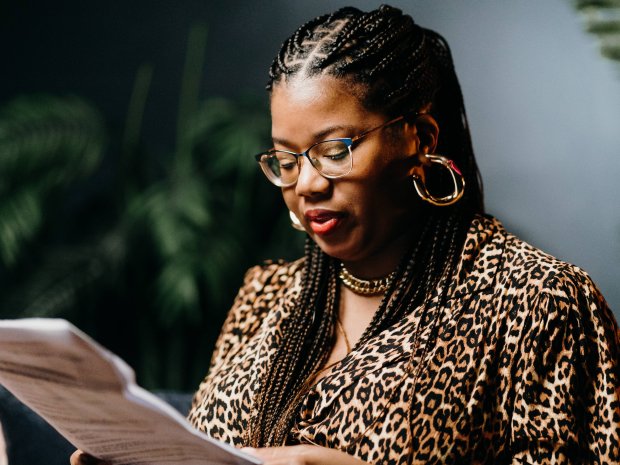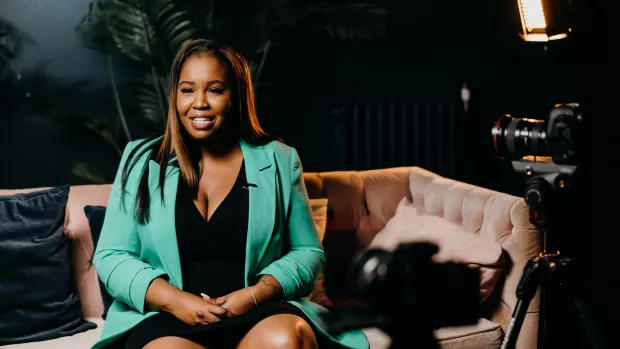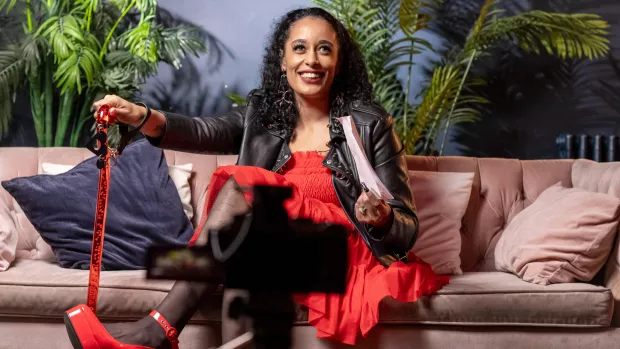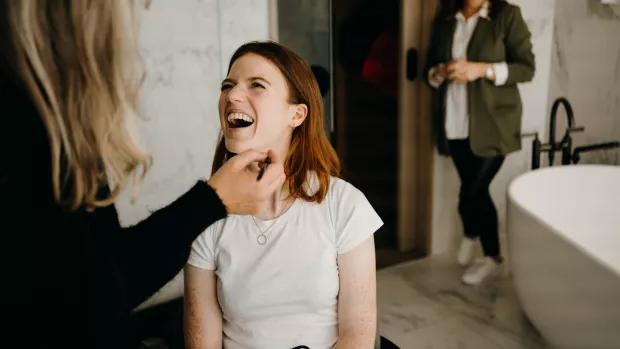
Hope Reborn: “it’s a celebration of acceptance”
Cherelle Gardiner is originally from Birmingham and now lives in London. She lives with relapsing remitting MS and was diagnosed 15 years ago, when she was 26. She features as an extra in the Fabio D’Andrea awareness-raising film, Hope Reborn. The scene she’s in is a celebration – seeing Rose Leslie playing the lead Amy, as she comes to terms with her diagnosis of MS.
At the moment, my MS has caused me to go ahead and take the leap to work part-time to take care of my health and well-being. I reduced my hours but not my ambition. Working full-time was taking its toll. But it’s really helped me with my resilience, to think about my life goals.
The Hope Reborn project is really close to my heart because it’s a different perception of MS. It sheds light on the different ways individuals are impacted by MS and the sacrifices and adjustments we have to make to our lives. Those who don’t have MS can see how amazing it is that we can do things people think we can’t.
On set for the filming
I’ve been on a panel for other events, talking about MS, but being on the film set for Hope Reborn was different. The environment meant I could see things from a different point of view. It wasn’t focused on me, or anyone close to me with MS. Instead it was about an individual that I don’t know (the character Rose Leslie plays) yet I was able to acknowledge what Amy, someone else living MS was going through, resonating with the challenges faced when you remain ambitious, regardless of having a disability.
Coming to terms with mobility aids
I felt grief watching the dancing scene. I know how it feels when you can’t do what you used to do. And then that heartfelt moment when the relationship became more apparent with the walking aid. That for me was inspiring, because at first, I wasn’t sure how I was going to use a walking aid in public. And in actual fact, when I did, it was a celebration of acceptance.
Making MS visible
I think it’s important to raise awareness of MS in various ways, in the first place, Representation matters. And then also because MS isn’t really spoken about. It’s invisible, but the people who have it aren’t. Raising awareness means we get to speak, to use our voices. We get to showcase what we can do. We may have disabilities but that doesn’t mean we can’t do things.


